|
Editor's Note: Leslie Singer's work in the 1980s incorporated elements of pop, conceptual and performance art; as well as doses of hardcore punk and lo-fi experimentalism; and even contained traces of progressive rock. Her music and films prefigured Harsh Noise and Riot Grrrls.
Dear EC Community Members,
Hal McGee and I have been working on uncovering and assembling an untold history of unheard music. This one is centered in the much storied Washington DC Punk / New Wave scene at the dawn of the Reagan 1980’s. While many fans of US punk and post-music have heard or read about the straight edge, hardcore punk scene that was based in DC during the very early ’80’s, not as many know about the art punk bands such as the one I was a founding member of in 1982, Psychodrama. Based out of the DC “bedroom communities” of Northern Virginia, Psychodrama (Brett Kerby, Rob Lippert and me) came into existence after playing together and meeting each other through the Throbbing Gristle-damaged From Far Away, Beauty? Psychodrama’s influences were no wave, prog rock, electronic music, dada, surrealism and horror movies like the original Night of the Living Dead. Our lyrics were naive excursions into “transgression”, covering such topics as death, Armageddon, drivers ed movies and bitching about the DC music scene as was fitting for a band who consisted of mostly disaffected teenagers (I was 18 going on 19, Rob was 15.). Brett, in his mid ‘20’s, was a veteran of DC progressive rock group, Bazilisk. Psychodrama performed/gigged at the now legendary DC clubs, d.c. space and The Chancery as well as one wacky show at CBGB’s in NYC. Audiences didn’t know exactly how to respond our blend of musics and theatrics but that didn’t stop us from releasing a cassette album in the spring of 1982, 300 Days of Sodom. Inspired by the burgeoning art cassette movement, we self-produced and distributed a 30 minute cassette of our tunes.
By the late summer of 1982, two of us in Psychodrama, (Brett and me) decided that it was time for a change. We drove across country and moved to San Francisco in October 1982. After two weeks, Brett moved back to Northern Virginia and I stayed on to put out a series of five cassette albums under such monikers as Girls on Fire, Sadistic Gossip, and Girls Who Hate Their Mothers.
Over the past several months, Hal and I have been putting together this story in words, pictures and music. We hope you enjoy it!
12 Comments
While having the pleasure and honor to work with Hal McGee in assembling the history of my early 1980’s multi cassette album project, Girls on Fire and all its other manifestations including my earlier work with Washington DC art noise bands, From Far Away Beauty and Psychodrama, I have gotten the opportunity to renew my affinity for working in collaboration especially in a band or music related setting. With this good feeling of working with Hal, I reviewed all my ‘80’s cassette albums and came away with more good feeling about one of my releases in particular, “Diary of a Shiteater.” I did this cassette album under the moniker of Girls Who Hate Their Mothers/The Chicken Fucks and in collaboration with my old bandmates in the second incarnation of Psychodrama, Brett, Rob, and Mark/Jim Taylor. “Diary of a Shiteater” is a volcanic bubble of cut up samples of songs by me, the Psychodrama guys and snippets of others out in the world. All pushed into the red even more than The Velvets' White Light/White Heat. Hearing all this hot mess now reminded me of another work and another great collaboration also from the 1960’s, the Everest recording of John Cage and David Tudor’s realization of Variations IV. Variations IV was composed in 1963 and is considered part of Mr. Cage’s compositional Indeterminacy period. As I understand it, the composition has a graphic score with different clear plastic overlays and it is about different sounds occupying different spaces simultaneously and what happens to our perception of time and space as the composition unfolds. In 1965, as a fundraiser, Mr. Cage and Mr. Tudor performed this piece at the Feigen/Palmer Gallery on La Cienaga Boulevard in Los Angeles in 1965. The Everest recording was first released in 1966. It has since been reissued a number of times and is currently available on CD, vinyl and digital download. The recording of this realization should have been used as the soundtrack for the gallery scenes in the 1971 Columbo episode entitled “Suitable for Framing” about the homicidal art critic who kills an art collector, steals his Degas drawing, enlists his hapless art school girlfriend to assist him with the crime and then attends an opening of a contemporary art show on La Cienaga Boulevard so he can have an alibi. The paintings on display are wild abstractions with the gallery owner holding court and thrilled that the critic has finally attended a show at her fine establishment. The Everest recording of Variations IV has this same kind of feel. One hears a room recording of various snippets of symphonies, operas, lectures, historical dramas and folk songs from scratchy old records mixed in with the faint sounds of an art opening. A woman is explaining that the show is like a happening and that according to Mr. Cage one never hears the same sound the same way twice. Sound is always changing. Then we hear her again loudly announcing that she sold the Monet this morning. A male responds with “Show me the check, baby!” The Everest recording is broken out in 7 sections, with 5 to 15 minute excerpts from the evening’s performance according to hourly segments “ 7 pm to 8 pm, “8 pm to 9 pm” etc. until the final section which ends at 1 am with the sounds of a toilet flushing. The records and conversations are a great documentation of the early ‘60’s era: classical music trying to hold its own against rock ’n’ roll and the folk music revival, America coming to grips with the legacy of WWII as it is about to go into Vietnam, the changing attitudes about sex and marriage and the rise of modern and contemporary art as an investment product. The Everest recording of Variations IV brings all of this together as a sound cut-up par excellence. Editor's Note From Hal McGee:
Leslie's Diary of a Shiteater cassette will soon be available on my Cassette Art Classics site on Bandcamp. Easter Egg Preview of Girls On Fire archival site |
Leslie SingerAfter high school and a year in the DC noise band, Psychodrama, I moved to SF in 1982. Archives
November 2020
|
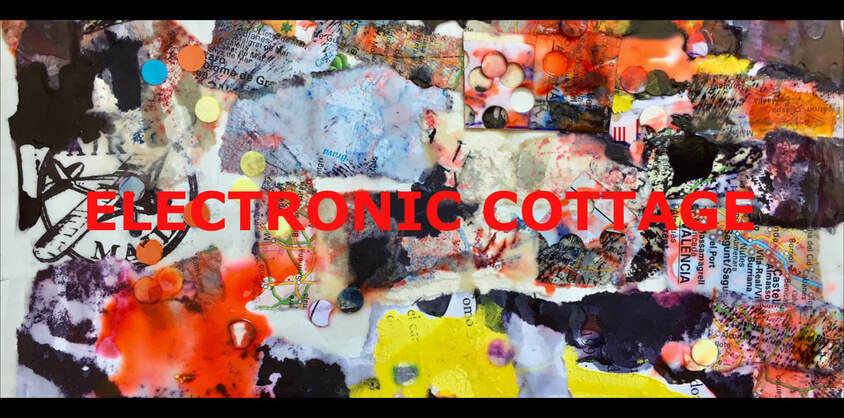
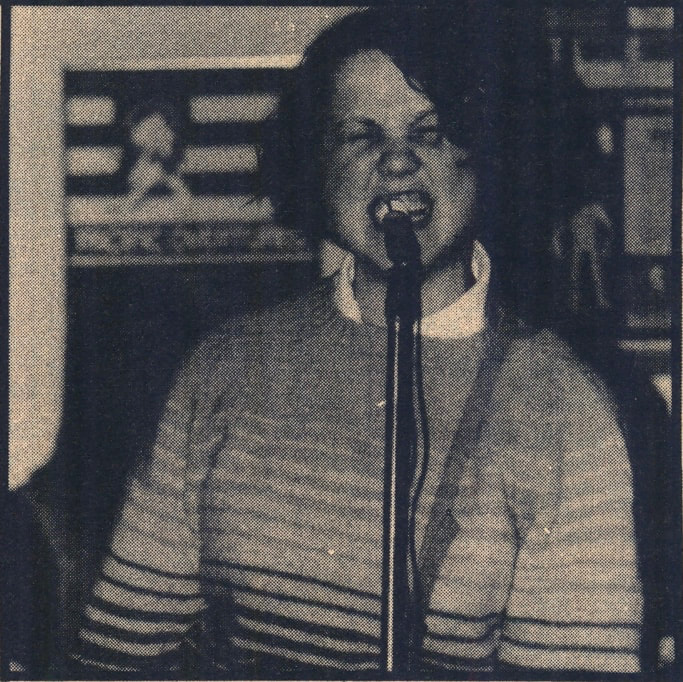
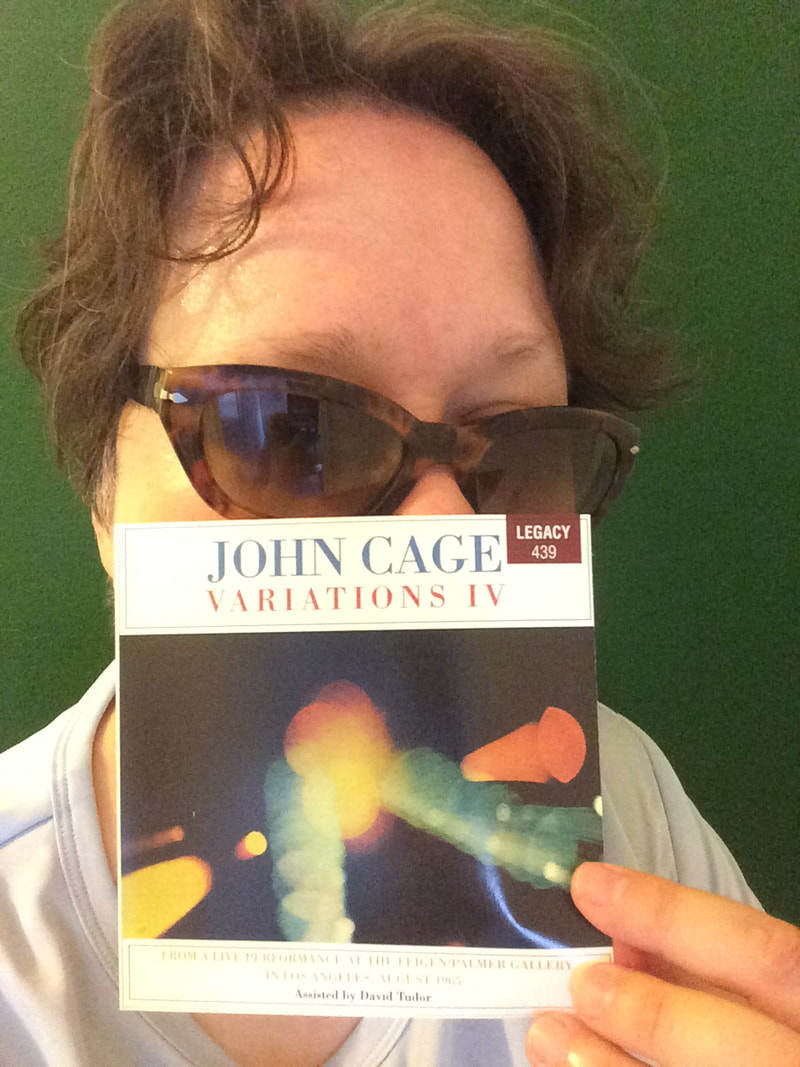
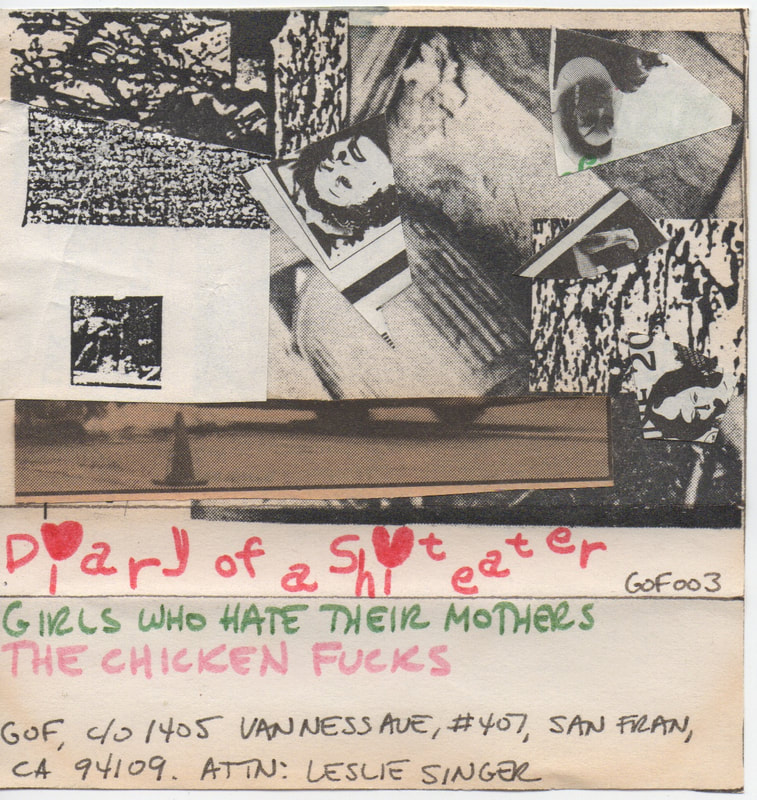
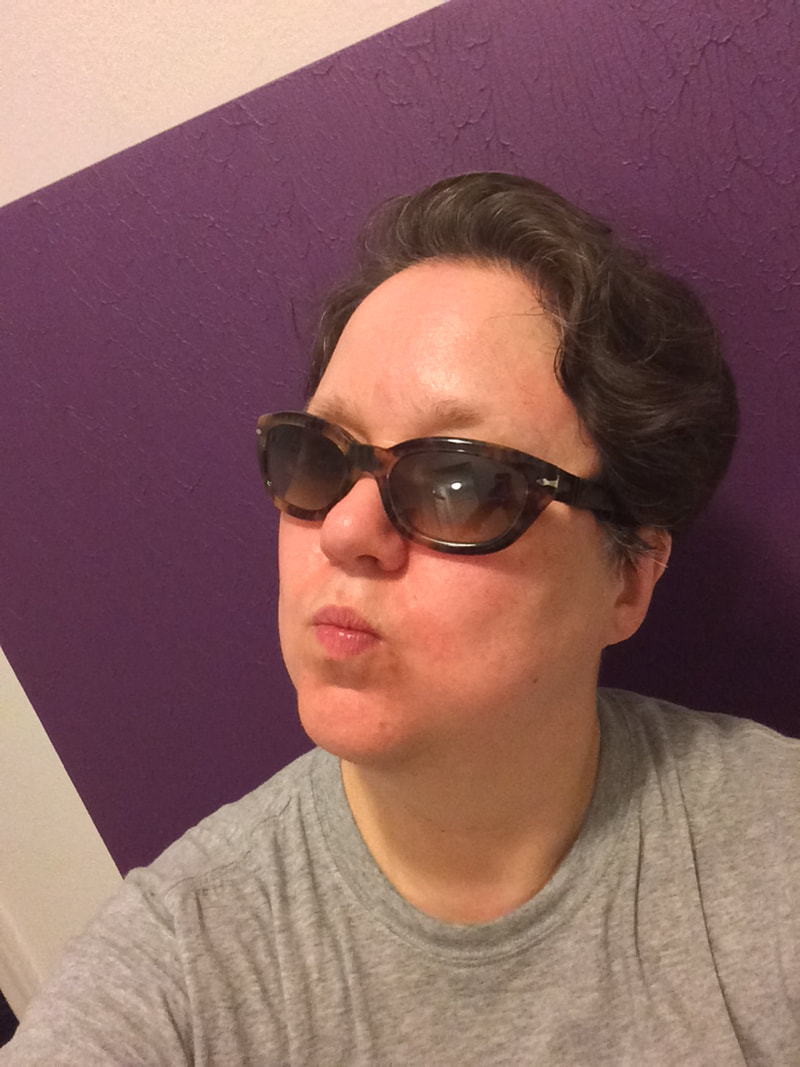
 RSS Feed
RSS Feed